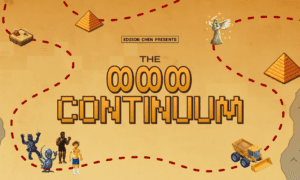In the early days of Pong and Space Invaders, who could have predicted our massive and diverse gaming world today? The gaming blooket join industry has evolved from simple pixel graphics to a multi-billion-dollar behemoth that includes immersive experiences, e-sports, and interactive narratives that rival blockbuster films. But how did we get here? Let’s embark on a journey through the evolution of gaming.
Beginnings: The Dawn of Digital Gaming
It all started in the 1970s with arcade machines. Games like Pong and Pacman laid the groundwork, showing the world that digital games could be entertaining, addictive, and lucrative. The success of these games set the stage for the home console market, with Atari releasing its 2600 system, bringing digital gaming into living rooms worldwide.
The Console Wars and Rise of Home Gaming
The 1980s and 90s witnessed the onset of the console wars. With games like Super Mario Bros and The Legend of Zelda, Nintendo’s NES how2invest was a game-changer, setting a standard for home consoles. With its edgy marketing and Sonic series, Sega became a formidable competitor.
Then, Sony entered the fray with the PlayStation. Its superior graphics and groundbreaking titles like Final Fantasy VII and Metal Gear Solid shifted the paradigm. Gaming wasn’t just for kids anymore. Mature narratives and complex game mechanics appealed to older demographics as well.
The PC Gaming Revolution
Parallel to console gaming was the rise of PC gaming. Titles like Doom and Warcraft showcased the unique capabilities of personal computers. Online multiplayer games emerged, with World of Warcraft as the epitome of MMORPGs (Massively Multiplayer Online Role-Playing Games). These games’ blend of social interaction, strategy, and immersive storylines drew millions.
Steam, created by Valve, revolutionized the distribution of PC games, making it easier than ever for indie developers to share their creations and for gamers to access a wide variety of titles.
The Mobile Gaming Surge
As smartphones became ubiquitous, gaming now.gg adapted. Games like Angry Birds and Candy Crush Saga showcased that engaging experiences could be had in short bursts. These casual games appealed to a vast audience, many of whom had never considered themselves “gamers” before.
VR and AR: The Next Frontier
Virtual Reality (VR) and Augmented Reality (AR) are shaping the future of gaming. VR systems like the Oculus Rift and HTC Vive transport players to entirely digital worlds, while AR games like Pokemon blend the real and digital.
E-sports and Gaming as a Spectator Sport
Games like League of Legends and Dota 2 have given birth to e-sports, where players compete at a professional level, and fans gather online and offline to watch. With huge tournaments, sponsorships, and even college scholarships for e-sport athletes, gaming’s reputation has evolved from a simple pastime to a legitimate career option.
SEO and the Gaming Industry
Search Engine Optimization (SEO) is crucial in the gaming industry. As developers and publishers seek to expand their audiences, optimizing content for search engines becomes paramount.
Keywords: Developers can tailor their games and marketing strategies by understanding what potential players are searching for. For instance, a high search volume for “zombie survival games” might influence a studio’s decision to create a title in that niche.
Content Marketing: Engaging content, such qureka banner as blogs about game mechanics, walkthroughs, and behind-the-scenes looks at game development, can attract potential players and boost a game’s visibility on search engines.
Social Media and Backlinks: Shares, mentions, and reviews on social media and gaming platforms can significantly boost a game’s SEO. These serve as “votes of confidence” from the community, pushing rounds higher in search engine rankings.
Conclusion
From the arcades of the 70s to the VR headsets of today, the gaming industry’s journey has been nothing short of spectacular. As technology advances and the world becomes ever more connected, one thing is clear: the future of gaming is boundless and potentially limited only by our imaginations.
Remember, whether you’re a game developer, marketer, or enthusiastic player, understanding the intersection of gaming and SEO can unlock doors to new worlds, both digital and actual.



































